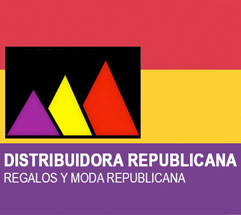The Trips Agreement
Article 40 of the TRIPS Agreement provides that certain practices or conditions relating to intellectual property rights that restrict competition may have negative effects on trade and impede the transfer and dissemination of technology (paragraph 1). In accordance with the other provisions of the Agreement, Member States may take appropriate measures to prevent or control abusive and anti-competitive IPR licensing practices (paragraph 2). The Agreement provides for a mechanism where by which a country wishing to combat practices in which companies of another Member State participates shall enter into consultations with that other Member State and provide non-confidential information publicly available and relevant to the matter in question and other information at its disposal, subject to national law and the conclusion of satisfactory agreements on compliance with its confidentiality by the requirement. (paragraph 3). Similarly, a country whose companies are subject to such measures in another Member State may enter into consultations with that Member (paragraph 4). The Agreement on trade aspects of intellectual property rights (TRIPS) is an international agreement between all member states of the World Trade Organization (WTO). It establishes minimum standards for the regulation of different forms of intellectual property (IP) by national governments, as applied to nationals of other WTO member countries. [3] TRIPS was negotiated at the end of the Uruguay Round of the General Agreement on Tariffs and Trade (GATT) between 1989 and 1990[4] and is managed by the WTO. The TRIPS Agreement is an agreement on minimum standards that allows members to guarantee, if they so wish, broader protection of intellectual property.
Members are free to determine the appropriate method for implementing the provisions of the Agreement in their own legal and practical order. The 2002 Doha Declaration reaffirmed that the TRIPS Agreement should not prevent members from taking the necessary measures to protect public health. Despite this recognition, less developed countries have argued that flexible TRIPS provisions, such as compulsory licensing, are almost impossible to enforce. Less developed countries, in particular, cited their young domestic manufacturing and technology industries as evidence of the imprecision of the policy. Since the entry into force of TRIPS, it has been the subject of criticism from developing countries, scientists and non-governmental organizations. While some of this criticism is directed at the WTO in general, many proponents of trade liberalization also see TRIPS as bad policy. The wealth concentration effects of TRIPS (the movement of money from people in developing countries to copyright and patent holders in developed countries) and the imposition of artificial shortages on citizens of countries that would otherwise have weaker intellectual property laws are common bases for such criticism. Other criticisms focused on TRIPS` failure to accelerate the flow of investment and technology to low-income countries, an advantage advanced by WTO members before the agreement was created. World Bank statements indicate that TRIPS has not been able to tangibly accelerate investment in low-income countries, although this has been done for middle-income countries. [33] The long periods of validity of patents under TRIPS have been examined to indicate that they excessively slow down the market entry of generic drug substitutes and competition in the market. .
. .

